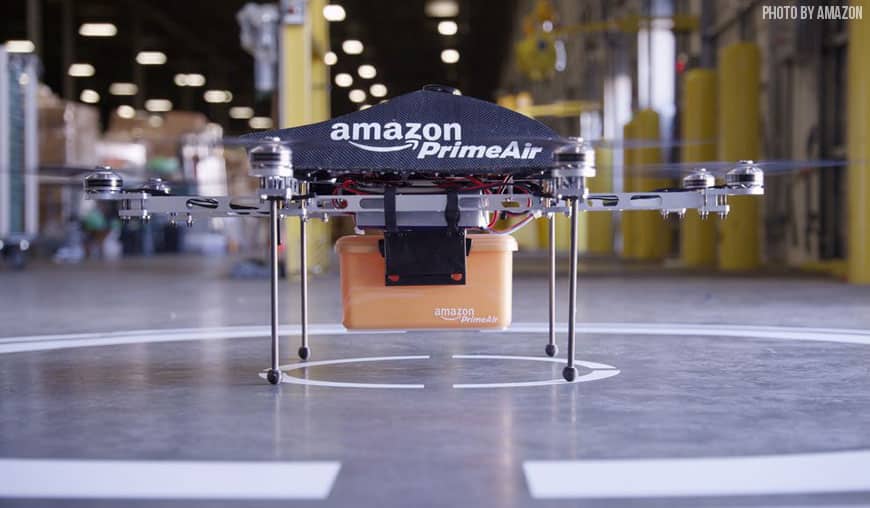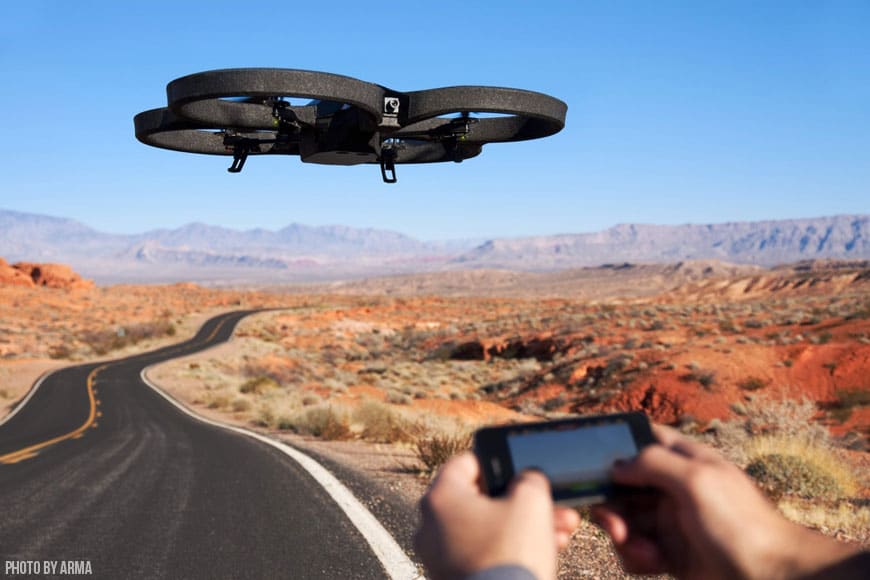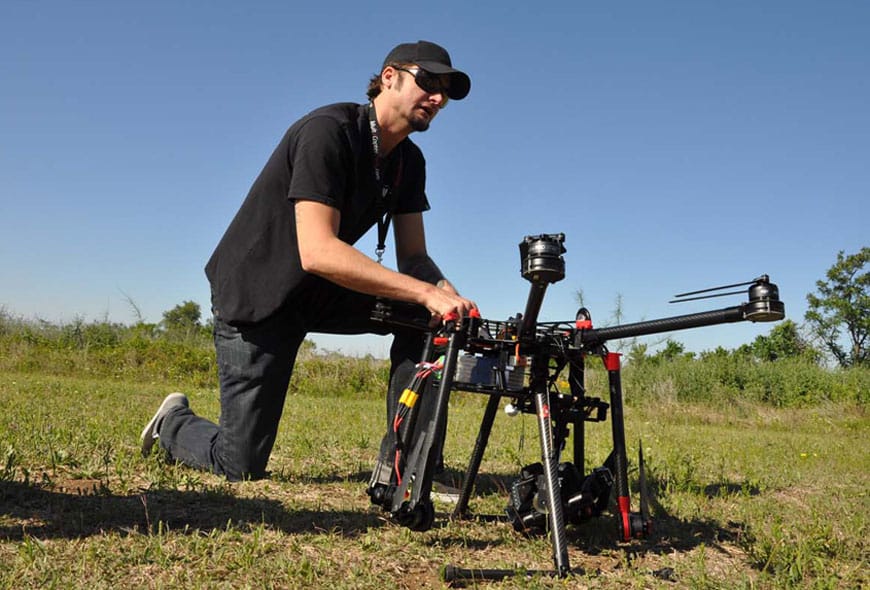When anybody says the word “drone,” most people automatically think about the numerous military attacks that have been undertaken by using drone warfare. This has conditioned us to be terrified of drones. They’ve become known as an unanticipated enemy that will take innocent lives. However, technology (never ceasing to amaze us) is changing the drone game. Innovative engineers are inventing new ways to use commercial drones for a plethora of things other than war. Commercial drones could make everyday life easier in a variety of ways, but before we start getting excited, let’s first consider the possible negative outcomes.
What Are Commercial Drones?
A drone is a compact, GPS-enabled remote control flying device with an advanced autopilot that can simulate all stages of a flight from takeoff to landing. As they evolve, people are rapidly coming up with new ways to integrate commercial drones into society instead of solely using them for military purposes.
The start-up company, Matternet, is working to create a network of drones able to transit lifesaving goods to under-developed areas. Places with little access to food, water, medicine and basic hygienic necessities could benefit from delivery drones colossally. The Bill & Melinda Gates Foundation is backing a project similar to this: a rural drone transportation system that aims to deliver vaccines to disaster-struck locations that aren’t accessible otherwise.
Even pizza delivery companies like Domino’s have tested the possibility of delivering pizza to our homes via the “DomiCopter.” Imagine a future where the pizza delivery boy works from home as a licensed professional drone pilot. Other food companies are looking into drone food delivery as well.
Farming could become much less time-consuming with surveillance drones flying overhead, analyzing the land. They could provide pictures of fields to enable farmers to identify problems with their crops that they may not have detected walking through the fields. Drones could even aid agricultural tasks such as spraying pesticides and scanning crops to help farmers improve water levels and fertilizer use.
Commercial drones have been used to capture stunning aerial photographs or bird’s-eye view video footage. The world of photography is literally being taken to new heights by the incorporation of this revolutionary drone technology.
Archeologists are using drones to map archeological sites and better protect them from vandalism. Drones are even being used for wildlife protection. Efforts in Kenya to protect four of the world’s last remaining northern white rhinos have been advanced by a $70,000 drone. The drone will monitor the location of wildlife and discourage poachers from harming animals.
Contrary to the current reputation of drones as lethal weapons to be feared, drones can actually be used for safety and security purposes. They can be pre-programmed to scan an area inch-by-inch, comprising a flawless search party and offering police a new set of eyes. The Los Angeles County Sheriff’s Department actually began experimenting with a rescue drone as early as 2006.
Amazon is also a big player in the commercial drone game. It’s working on a system to deliver packages under 5 pounds by drone, and about 85% of the packages Amazon delivers are under 5 pounds. This could take a lot of jobs away from people involved in the delivery field, but it would also mean fewer cars and trucks on the road and increased convenience.
It’s clear that commercial drones have the ability to revolutionize society, but at the same time, picturing a world consumed by flying remote control devices everywhere seems like a dystopian future. There are many upsides to the integration of commercial drones, but they could also bring about some consequences that have to be weighed.
Are We Ready For A Drone Takeover?
As of now, the United State doesn’t even allow for commercial drone use, but that’s expected to change in 2015. There are no current laws or regulations regarding commercial drones, but the Federal Aviation Administration (FAA) aims to implement a plan for getting drones up in US airspace.
There is already some concern about the potential dangers and invasion of privacy that could surface from the rise of drones. Although there has long been debates over privacy law due to surveillance technology, it’s likely that people would react much differently to the idea of a remote control flying device that could spy on them and demand more protection through the law.
Numerous reports of near-collisions between drones and other drones, or drones and helicopters raise a lot of opposition to the integration of drones in the US skies. Since drones are unmanned vehicles, there would be a lot of controversy over who’s at fault in an accident. Certainly, if a drone caused an aircraft to go down and people were injured or killed, there would be an outrage about these remote controlled devices.
While there are ways in which new jobs could be created, it cannot be ignored that the rise of commercial drones would send a lot of people into unemployment. Although companies would need professional drone pilots, the jobs of farmers, photographers, filmmakers, deliverymen and more could be taken away for good.
The debate on simply where we need to draw the line is becoming increasingly louder. There were reports of a rooftop party in Las Vegas where drones delivered bottles of champagne to guests at a pool party. Using drones in this manner seems downright excessive. We have to think practically. Do we really want drones buzzing around delivering our pizza, Amazon packages, and champagne?
What began as a military controversy has grown into a civil rights issue. Commercial drones could definitely make our lives easier at home, but there are various ways in which they could negatively impact our lives as well. Drones have the capability to promote safety, help people in need, and simplify the way things are currently done, but they also have the capability to be spies, job thieves, and cause crashes or injuries.



